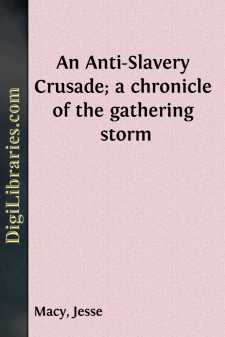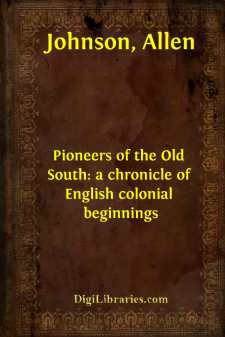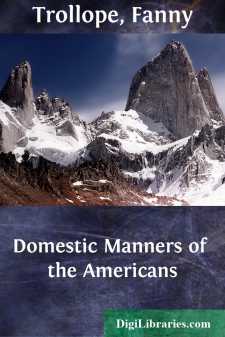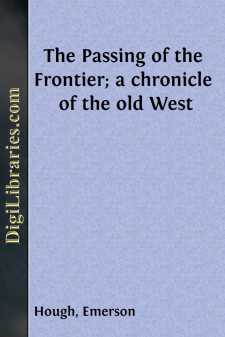History
- Africa 30
- Americas (North Central South West Indies) 50
- Ancient 68
- Asia 58
- Australia & New Zealand 8
- Canada 41
- Caribbean & West Indies 1
- Civilization 20
- Eastern Europe 12
- Europe 310
- Expeditions & Discoveries 60
- General 77
- Historical Geography 1
- Jewish 9
- Latin America 3
- Medieval 8
- Middle East 14
- Military 248
- Revolutionary 8
- Study & Teaching 5
- United States
- Western Europe 56
- World 13
United States Books
Sort by:
CHAPTER I. Character of a City illustrated by Riots.—New Material for History ofDraft Riots.—History of the Rebellion incomplete without History ofthem.—The Fate of the Nation resting on the Issues of the Struggle in NewYork City.—The best Plan to adopt for Protection against Mobs. The history of the riots that have taken place in a great city from its foundation, is a curious and unique one,...
more...
James Buchanan James Buchanan was born near Mercersburg, Pa., April 23, 1791. His father, James Buchanan, a Scotch-Irish farmer, came from the county of Donegal, Ireland, in 1783. His mother was Elizabeth Speer. The future President was educated at a school in Mercersburg and at Dickinson College, Pennsylvania, where he was graduated in 1809. Began to practice law in Lancaster in 1812. His first public...
more...
by:
Jesse Macy
CHAPTER I. INTRODUCTION The Emancipation Proclamation of President Lincoln marks the beginning of the end of a long chapter in human history. Among the earliest forms of private property was the ownership of slaves. Slavery as an institution had persisted throughout the ages, always under protest, always provoking opposition, insurrection, social and civil war, and ever bearing within itself the seeds...
more...
by:
Allen Johnson
CHAPTER I. THE THREE SHIPS SAIL Elizabeth of England died in 1603. There came to the English throne James Stuart, King of Scotland, King now of England and Scotland. In 1604 a treaty of peace ended the long war with Spain. Gone was the sixteenth century; here, though in childhood, was the seventeenth century. Now that the wars were over, old colonization schemes were revived in the English mind. Of the...
more...
by:
Fanny Trollope
CHAPTER 1 Entrance of the MississippiвÐâBalize On the 4th of November, 1827, I sailed from London, accompanied by my son and two daughters; and after a favourable, though somewhat tedious voyage, arrived on Christmas-day at the mouth of the Mississippi. The first indication of our approach to land was the appearance of this mighty river pouring forth its muddy mass of waters, and mingling...
more...
by:
Emerson Hough
Chapter I. The Frontier In History The frontier! There is no word in the English language more stirring, more intimate, or more beloved. It has in it all the elan of the old French phrase, En avant! It carries all of the old Saxon command, Forward!! It means all that America ever meant. It means the old hope of a real personal liberty, and yet a real human advance in character and achievement. To a...
more...
PREFACE The present work concludes the series of "The Influence of Sea Power upon History," as originally framed in the conception of the author. In the previous volumes he has had the inspiring consciousness of regarding his subject as a positive and commanding element in the history of the world. In the War of 1812, also, the effect is real and dread enough; but to his own country, to the...
more...
CHAPTER I. SOME men choose to live in crowded cities;—others are pleased with the peaceful quiet of a country farm; while some love to roam through wild forests, and make their homes in the wilderness. The man of whom I shall now speak, was one of this last class. Perhaps you never heard of Daniel Boone, the Kentucky rifleman. If not, then I have a strange and interesting story to tell you. If, when...
more...
by:
John Fiske
RESULTS OF YORKTOWN.Sympathy between British Whigs and the revolutionary party in America.The 20th of March, 1782, the day which witnessed the fall of Lord North's ministry, was a day of good omen for men of English race on both sides of the Atlantic. Within two years from this time, the treaty which established the independence of the United States was successfully negotiated at Paris; and at the...
more...











